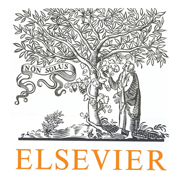دانلود ترجمه مقاله عوامل تعیین کننده رفتار پایدار شرکت و پیامد آن برای رضایت مشتری
| عنوان فارسی |
عوامل تعیین کننده رفتار پایدار شرکت ها و پیامدهای آن برای رضایت مشتری در صنعت مهمانداری |
| عنوان انگلیسی |
Determinants of sustainable behavior of firms and the consequences for customer satisfaction in hospitality |
| کلمات کلیدی : |
رفتار پایدار هتل ها؛ رضایت مشتری؛ مدلسازی معادله ساختاری؛ نگرش مدیر؛ نوآوری؛ مزیت درک شده رفتار پایدار |
| درسهای مرتبط | مدیریت جهانگردی و گردشگری |
| تعداد صفحات مقاله انگلیسی : 11 | نشریه : ELSEVIER |
| سال انتشار : 2020 | تعداد رفرنس مقاله : 78 |
| فرمت مقاله انگلیسی : PDF | نوع مقاله : ISI |
|
پاورپوینت :
ندارد سفارش پاورپوینت این مقاله |
وضعیت ترجمه مقاله : انجام نشده است. |
1. مقدمه 2. چارچوب نظری و توسعه فرضیات 3. روش تحقیق 4. نتایج 5. بحث و بررسی 6. نتیجه گیری

چکیده – منابع زیادی در رابطه با تعیین رفتار پایدار شرکت و اثرات آن بر عملکرد شرکت وجود دارد. با این حال، هنوز سوالات زیادی در این زمینه وجود دارد که باید پاسخ داده شود. یکی از عواملی که رابطه بین مواد تعیین کننده سازمانی و رفتار پایدار شرکت را وساطت می کند، تاثیر رفتار پایدار بر رضایت مشتری است. با استفاده از یک نمونه از داده های نظرسنجی از 974 هتل بزرگ و کوچک در آلمان و 62766 نظرسنجی مستقل، این مقاله به بررسی رابطه بین نوآوری، نگرش های پایدار مدیران و رفتار پایدار شرکت و همچنین بررسی مزایای درک شده رفتار پایدار به عنوان واسطه می پردازد. علاوه بر این، رابطه بین رفتار پایدار و رضایت مشتری نیز بررسی شد. یک مدل در این زمینه پیشنهاد شد و با استفاده از مدل سازی معادلات ساختاری تست گردید. نتایج نشان می دهد که نگرش های پایدار و نوآورانه به عنوان عوامل تعیین کننده رفتار پایدار و مزیت درک شده به عنوان واسطه عمل می کنند. رفتار پایدار دارای رابطه مثبتی با رضایت مشتری است. مقدمه: از آنجا که مجمع عمومی ملل متحد در سال 1987 و انتشار پراستنادترین تعریف توسعه پایدار (WCED, 1987)، توجه به پایداری به طور مداوم افزایش یافته و به یک روند مهم جهانی در عمل و در تحقیقات تبدیل شده است. (Leonidou and Leonidou, 2011) در صنعت هتلداری، کسب و کار شروع به ادغام اقدامات پایداری در فعالیت های منظم خود کرده اند. به پیروی از چارچوب ارکان سه گانه مفهوم سازی شده توسط الیکنگتون (1997)، رفتار پایدار باید ابعاد محیطی، اجتماعی و اقتصادی را به منظور تمرکز بر خلق ارزش مربوطه و به حداقل رساندن اثرات منفی در نظر بگیرد. تحقیقات قبلی بر روی رفتار پایدار شرکت ها و عمدتا بر روی بُعد اقتصادی پایدار (Prudhomme and Raymond (2013); Susskind, 2014) متمرکز است و یا به طور ویژه با بُعد زیست محیطی سروکار دارد. (Fraj et al., 2015; Ramanathan et al., 2016; Yu et al., 2017; Garay et al., 2019) چندین مطالعه تاکید کردند که مدیریت پایدار شامل سه ستون از پایداری است (Horak et al., 2018; Gerdt et al., 2019; Kuokkanen and Sun, 2019).
The literature on determinants of firm sustainable behavior and its effects on firm performance is rich. However, there are still important questions that lack definitive conclusions. One revolves around factors mediating the link between organizational determinants and firm sustainable behavior, which may still be regarded as a black box. Another stresses the impact of sustainable behavior on customer satisfaction. Using a sample of survey data from 974 small and medium-sized German hotels and 62,766 independent reviews, this paper examines the links between innovativeness, managers’ sustainability attitudes and firm sustainable behavior while taking into account perceived advantages of sustainable behavior as a mediator. Furthermore, the relationship between sustainable behavior and customer satisfaction is examined. A model is proposed and tested using structural equation modeling. The results confirm innovativeness and sustainability attitudes as determinants of sustainable behavior and perceived advantage as a mediator. Sustainable behavior shows a positive relation to customer satisfaction. Introduction: Since the United Nations General Assembly in 1987 and the publication of the often cited definition of sustainable development (WCED, 1987), attention on sustainability has grown steadily and become a global megatrend both in practice and research (Leonidou and Leonidou, 2011). Within the hospitality industry, businesses have started to integrate sustainability measures into their regular activities. Following the triple bottom line framework conceptualized by Elkington (1997), sustainable behavior should capture the environmental, social and economic aspects to focus on the corresponding value creation and minimizing negative effects. Previous research on firm sustainable behavior has either focused mainly on the economic dimension of sustainability (e.g. Prudhomme and Raymond (2013); Susskind, 2014) or dealt specifically with the environmental dimension (e.g. Fraj et al., 2015; Ramanathan et al., 2016; Yu et al., 2017; Garay et al., 2019). Few studies have emphasized that sustainability management comprises the three pillars of sustainability (e.g. Horak et al., 2018; Gerdt et al., 2019; Kuokkanen and Sun, 2019).



دیدگاهها
هیچ دیدگاهی برای این محصول نوشته نشده است.